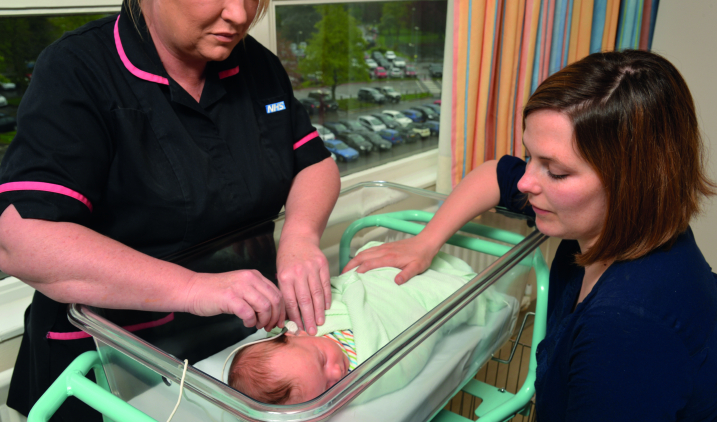Newborn hearing screener
Newborn hearing screeners help and support families with vital information about their babies' hearing.
Working life
All new parents are offered a hearing screening test in the first few weeks after their baby is born.
Working on neonatal units, post-natal wards and in clinics, newborn hearing screeners help identify babies that need testing and explain the screening procedure to parents. They also:
- make sure the equipment is working
- use equipment to screen babies
- give the parent or guardian the screening results and explain what happens next
- input the results onto a computer system

As a newborn hearing screener, you'll work as part of the audiology team with healthcare scientists, neonatal nurses, GPs and health visitors. You'll have a lot of contact with parents and their babies.
Entry requirements
There are no set entry requirements for newborn hearing screeners. Employers expect a good standard of numeracy and literacy and may ask for GCSEs or equivalent. They may ask for a nursery nursing or child-care related qualification, such as NNEB, BTEC or vocational qualification.
Employers usually ask for experience of working with children and families. They may also ask for experience of working with deaf people. This can be either or paid or voluntary work.
Personal characteristics and skills needed
As a newborn hearing screener, you need to be:
- happy to handle newborn babies
- calm and reassuring
- able to explain procedures to parents
- willing to work with people from all walks of life
- able to work as part of a team but use their initiative
- able to follow instructions
- able to use equipment
You'll also need:
- very good communication skills
- good customer care skills
- organisational skills
Training and development
You will be given the training you need for the job including how to use the equipment, health and safety and child protection. You may also have the opportunity to get a qualification by doing an apprenticeship. Newborn hearing screeners can join the British Society of Audiology (BSA) as associate members. The BSA offers conferences and meetings where hearing screeners can update their skills and network with others working in the field.